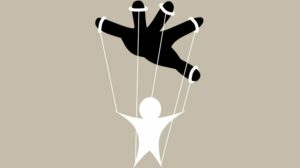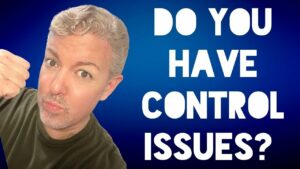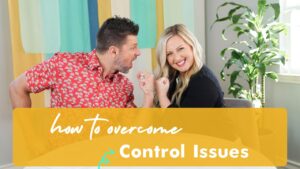We all think we have control over our lives and everything that happens, but the truth is that many things happen without our knowledge or consent. Take anger as an example- you can’t control when you’re angry, instead, it just comes out of nowhere, and sometimes those feelings of anger can be blinding. Control issues are complicated and prevalent in society today, so be sure to give it a read!
Contents
- 1 What Are Control Issues?
- 2 Signs You Have Control Issues
- 3 Do Control Issues Cause Anxiety/Depression?
- 4 Ways To Overcome Control Issues
- 5 Tips For Living With Someone Who Has Control Issues
- 6 Consequences Of Having An Out-of-control Life
- 7 Therapy For Control Issues
- 8 Steps To Take If You Are Experiencing Control Issues
- 9 A Word From MantraCare
What Are Control Issues?

When it comes to controlling issues, there is often a feeling of wanting to have a sense of power and authority in every area of one’s life. For some people, having a tight grip on all the aspects of their lives makes them feel more secure and in control. However, this is not always possible- or healthy. Control issues stem from a place of fear and insecurity and can manifest themselves in many different ways. It’s important to be aware of the signs and symptoms of control issues. As they can be very damaging both mentally and emotionally.
Many people who struggle with serious addiction issues often lose their jobs. So they turn to theft or prostitution in order to support themselves. People with mental health issues may feel out of control and unable to keep up appearances at work. So they quit and don’t look for another job- which can lead them directly down the path towards homelessness. It’s important to avoid these issues and seek treatment if you feel like you need it.
Signs You Have Control Issues

There are several ways to determine if you have a control issue.
- One way is to ask yourself if you feel like you’re not in control of anything in your life.
- Do you feel like whatever happens is out of your hands?
- Another good indication of a control issue is if you often feel anxious, frustrated, or restless. Because something feels off- even when there’s nothing wrong.
If this sounds familiar, it might be time to start working on your issues with controlling what goes on around you.
Another way to determine whether or not you might be struggling with a controlling issue is by looking at your relationship patterns and relationships in general.
- Do you tend to push people away before they even become close; perhaps dismissing them as someone who isn’t “good enough” for you?
- Do you have a hard time getting close to someone because you’re worried that they will take advantage of your kindness or leave you when times get tough?
If so, there may be some work needed on your side in terms of learning how to trust others to truly care about you.
Do Control Issues Cause Anxiety/Depression?
Control issues can often lead to anxiety and depression, which can be very difficult to cope with. If you’re struggling with these issues, it may be time to seek out help in the form of therapy. Therapy is a great way to learn how to control your thoughts, feelings, and behaviors. It can also help you develop new skills for dealing with old problems that have led you into suffering from anxiety or depression. Seeing a therapist can be a great step towards getting rid of your anxiety and depression.
Ways To Overcome Control Issues

If you’re someone who struggles with having a sense of power and influence over what goes on in your life. There are ways that you can work on reducing your feelings of lack of control. One way is to start by focusing on the things you do have control over like yourself, your emotions, and how you present yourself to the world. This can help give you a stronger sense of presence and awareness in all your relationships. It reduces any feelings of anxiousness and fear that you might feel when things don’t go your way.
Here are some common ways people try to solve their control issues:
- Distracting themselves with drugs and alcohol
- Being excessively nice to others so they don’t hurt you
- Trying to restrict the behavior of others (like someone’s music choices or dress clothes)
- Interfering in other people’s business- such as telling your roommate they are being too loud or telling your significant other how to drive
- Compulsive gambling
- Disturbances in sleep, eating patterns, sexual desire, and the ability to feel pleasure.
- Distressing intrusive thoughts
- Feeling the urge to check things over and over again, or having recurring images in your mind of scary situations.
Tips For Living With Someone Who Has Control Issues

When you’re living with someone who is constantly struggling with control issues, it can be incredibly draining and stressful. One of the most important things to keep in mind is that your loved one isn’t doing this on purpose. They are struggling with a disorder that can not control and they aren’t trying to hurt you or wear you down on purpose- despite what some people may think. So, be patient, supportive, and understanding as they work toward overcoming their issues. Here are some steps you can take to help your loved one:
If you are living with someone who struggles with issues of control it’s important to keep their best interests in mind while also being true to yourself. Here are a few tips for how you can achieve this:
- Find out what matters most to your loved one and work towards achieving that goal.
- Remind them of their worth and value- especially during difficult moments or when they attempt to push you away.
- Communication is key, so always be open and honest about things that bother you or set you off.
- Give them the space to say how they feel, even if it may hurt your feelings.
- Try not to engage in power struggles with them- this usually just leads to both parties getting more upset.
- Focus on giving them unconditional love so they feel loved no matter what.
- Take care of yourself- make sure you have your own support system to lean on when things get tough.
- Be patient with them and try to understand where they are coming from even if it doesn’t make sense to you.
- Try not to take their behavior personally- everyone has different needs and that’s okay!
- Be patient and compassionate with them
- Don’t give ultimatums, this will only push their buttons and cause them to become defensive or stubborn- which leads back to the original problem
- Give them space when they need it, while still making sure they know you are there for them when they are ready to talk or if they need anything
- Don’t tell them their problems are “ridiculous”- remember, they likely feel out of control
- Accept that this may be a long battle, but remind them it’s one worth fighting
- Encourage treatment- many people with control issues avoid seeking help because they believe their issues are “no big deal”
Living with a person who has control issues can be incredibly challenging. Remember to take care of yourself and your own needs while offering support and encouragement to your loved ones. It may not always feel like it, but you’re helping them by being there for them in tough times and reminding them that they are enough.
Consequences Of Having An Out-of-control Life

- Having an out-of-control life can have a lot of negative consequences.
- It can be incredibly hard to maintain healthy relationships when you’re always in chaos.
- It can also be difficult to hold down a job or go to school when you’re struggling with addiction or mental health issues.
- The most serious consequence of having an out-of-control life, however, is that it can often lead to homelessness or incarceration.
- Many people who struggle with serious addiction issues often lose their jobs. So they turn to theft or prostitution in order to support themselves.
People with mental health issues may feel out of control and unable to keep up appearances at work. So they quit and don’t look for another job- which can lead them directly down the path towards homelessness.
It’s important to avoid these issues and seek treatment if you feel like you need it. Having an out-of-control life is not something that should continue to take over your life. Seeking help can give you back the control that feels elusive and may even help you avoid dire consequences.
The study showed that controlling people often feel it’s their job to ensure everything goes smoothly. And if anything is not going according to plan they get stressed out and start exerting too much control over the situation. This can be very exhausting for a person who feels like there is always something they need to do to keep things on track.
Non-controlling people instead feel it’s their job to do what they enjoy and live the life that feels right for them. Even if it means there are some bumps along the way. If something goes wrong, non-controllers simply deal with the consequences and resolve any issues. While controlling people tend to get stressed out and try to take over.
Therapy For Control Issues

If you are struggling with control issues, it is important to seek professional help. Therapy can provide you with the tools you need to understand and manage your behavior. There are many different types of therapy available. So it is important to find the one that works best for you.
Some therapies that may be helpful for control issues include cognitive behavioral therapy, rational emotive behavioral therapy, and dialectical behavior therapy. These therapies can help you learn how to manage your thoughts and emotions, and how to better deal with stress.
If you are not sure if therapy is right for you, consider talking to a therapist or counselor about your concerns. They can help you decide if therapy is the right choice for you.
Therapies that can help with control issues include cognitive behavioral therapy, rational emotive behavioral therapy, and dialectical behavior therapy. These therapies can help people learn how to better manage thoughts and emotions and how to better deal with stress.
CBT– The therapist helps you find ways to gain back control.
Rational emotive behavioral therapy– The therapist helps you see your actions and thoughts rationally and encourages you to change unhelpful patterns of thinking and behaving
Dialectical behavior therapy– A type of CBT that emphasizes teaching coping skills and emotion regulation as well as validation and clarification of values, setting and committing to goals, and finding meaningfulness in life.
If you think therapy might help you, consider talking to a therapist or counselor about your concerns. They can help you find the right kind of therapy for your needs.
Steps To Take If You Are Experiencing Control Issues
Control issues can stem from a variety of different factors and manifest in many ways. Whether you want to take more control over your life or just need some guidance. There are steps that you can take today that will help improve the quality of your mental health. Here’s how:
- First, recognize what is causing those feelings of lack of control*- This might be as simple as feeling like your work schedule has gotten out of hand and needs to be reorganized.
- Start taking one small step at a time towards gaining back the sense that you have power over certain aspects of your life. It might feel difficult at first but it’ll get easier with practice. As long as you’re patient with yourself then this should lead to your life becoming more balanced overall.
- Remember to celebrate your achievements -It is important not to get too overwhelmed with the process of taking back control again. Acknowledge yourself for all of your hard work and don’t be afraid to pat yourself on the back every now and then.
A Word From MantraCare
Your mental health — your psychological, emotional, and social well-being — has an impact on every aspect of your life. Positive mental health essentially allows you to effectively deal with life’s everyday challenges.
If you are looking for affordable Online Counseling MantraCare can help: Book a trial therapy session


